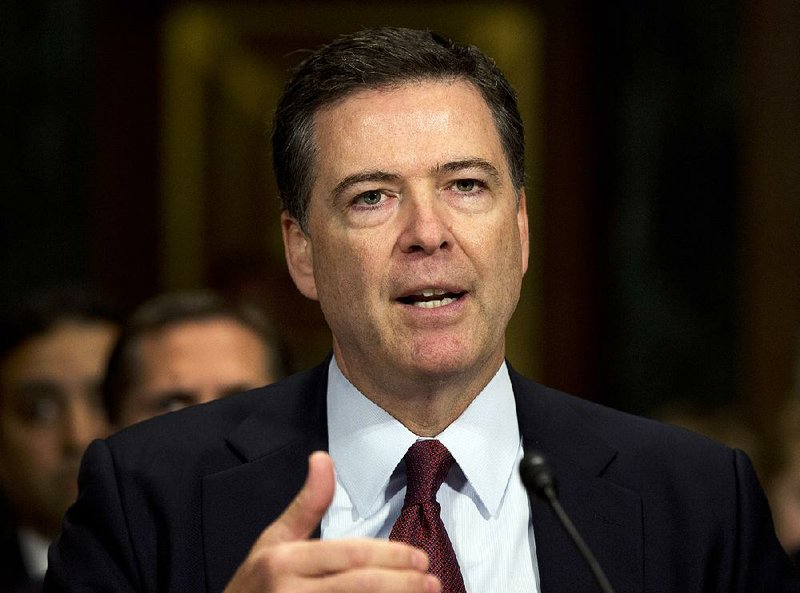WASHINGTON -- President Barack Obama's administration is overhauling its efforts to combat the online propaganda of the Islamic State and other terror groups, U.S. officials said, replacing largely ineffective efforts so far to cut into its use of social media to draw recruits and incite attacks.
RELATED ARTICLE
http://www.arkansas…">2 face terror counts after online boasts
Officials will create a new counterterrorism task force, which will be based at the Department of Homeland Security but aims to enlist dozens of federal and local agencies, including the FBI and the National Counterterrorism Center. Other moves include revamping a State Department program that was created to serve as an information war room to challenge the Islamic State online and erode its appeal.
U.S. officials said the unit at the State Department will turn its focus toward helping allies craft more localized anti-terror messages and will stop producing any videos or other material in English -- ending a campaign that had been derided by critics.
The plans were announced by the White House on Friday, when senior members of Obama's national security team including Attorney General Loretta Lynch, spy chief James Clapper and FBI Director James Comey traveled to California in a renewed effort to enlist Silicon Valley companies to help contain the evolving terror threat.
The officials held a private meeting with Apple CEO Tim Cook and senior executives from Google, Facebook, Yahoo and other tech firms. While the session was described by tech company representatives as cordial, no specific agreement or other outcome was announced.
"This meeting confirmed that we are united in our goal to keep terrorists and terror-promoting material off the Internet," Facebook said in a statement. Spokesmen for several other companies declined comment on the meeting Friday.
A White House spokesman, meanwhile, took pains to describe tech leaders as patriotic Americans who have no interest in seeing "their tools and their technology being used to aid and abet terrorists."
The government wants tech companies' help in stopping extremists from finding "refuge" online, while also looking for ways to "create, publish and amplify" messages that counter extremist propaganda, White House spokesman Josh Earnest said.
The moves come at a time of increasing public anxiety and criticism of the administration's strategy after recent attacks in Paris and San Bernardino, Calif., that were linked to or partly inspired by the Islamic State. Although some of the initiatives have been in development for months, U.S. officials acknowledged a heightened sense of urgency and opportunity.
"Everybody realizes that this is a moment ... to take advantage of," said a senior administration official, adding that the objective in sending so many top officials to Silicon Valley was to make sure "that they understand what we are up against with respect to ISIL."
The Islamic State is sometimes referred to as ISIS or ISIL. The official was one of several who were authorized to discuss the plans before the announcement on condition of anonymity.
The State Department's countermessaging team has had three leaders in little more than a year and has cycled through multiple strategies in its search for a way to counter the propaganda output of the Islamic State. The FBI has also ramped up efforts against violent extremism, opening nearly 1,000 cases across the country and cultivating closer ties to Muslim communities. Even so, it was caught off guard by the San Bernardino attacks.
The changes unveiled on Friday appear to be centered on bureaucratic and strategic adjustments, with little indication of any substantial increase in resources.
U.S. officials said the State Department's countermessaging operation will be rebranded the "Global Engagement Center."
The centerpiece of the administration's revised plan is a new task force at the Department of Homeland Security that officials said would coordinate all of the government's domestic counter-radicalization efforts and serve as a conduit for ideas, grants and other resources to community groups across the country.
The task force will be led by George Selim, a Homeland Security Department official who previously served at the White House as director for community partnerships, a position that put him in regular contact with local law enforcement agencies and Muslim communities.
U.S. officials said the new unit will be made up of representatives from at least 11 different departments or agencies, and that its mission will involve using data to find better ways to combat radicalization, as well as funding and supporting intervention efforts.
Information for this article was contributed by Greg Miller, Karen DeYoung and Ellen Nakashima of The Washington Post; and by Brandon Bailey, Kathleen Hennessey, Michael Liedtke and Josh Lederman of The Associated Press.
A Section on 01/09/2016

